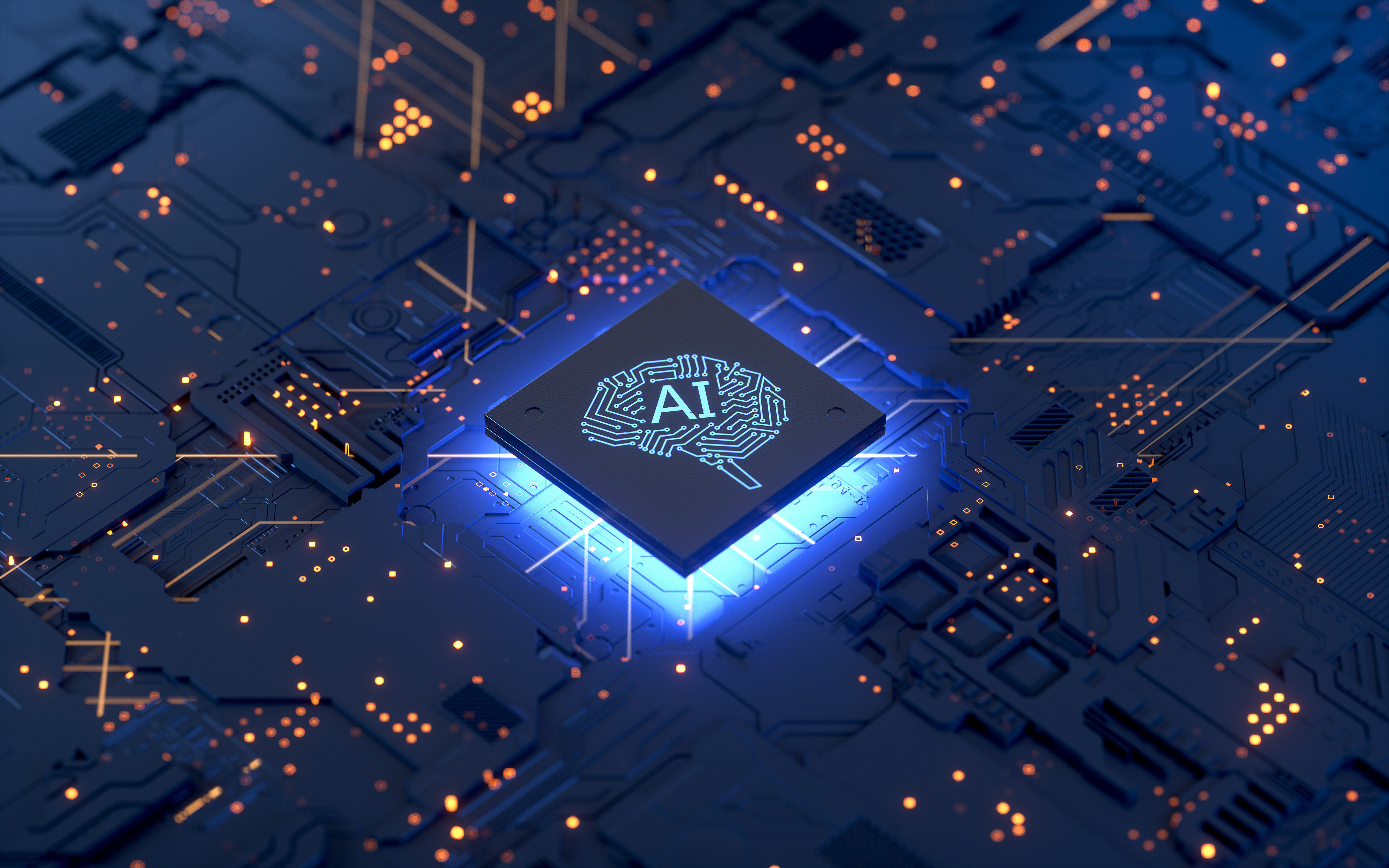AI Agents: Catalysts Transforming SaaS, Healthcare, and Legal Services

In a world of routine processes and information overload, AI agents are the alchemists turning mundane tasks into gold. These autonomous digital assistants work 24/7 across industries, challenging old systems and transforming how we work. They can understand human language, make decisions, and continuously learn from experience. This means they don’t just follow rules – they adapt and get smarter with each interaction. Companies are already using AI agents to scale up faster, meet key goals, and solve problems before they escalate. In this guide, we’ll explore real-world examples of AI agents in three key arenas – SaaS, healthcare, and legal services – and see how these digital allies operate under the hood. Get ready for an inspiring journey into AI agents’ bold, game-changing impact, delivered in simple terms.
AI Agents in SaaS: Revolutionizing Software Services
SaaS (Software as a Service) companies are infusing AI agents into their platforms, creating a bold new layer of intelligence. Think of an AI agent as a super-smart assistant inside your CRM or project management tool, always ready to help. For example, Salesforce’s Agentforce platform lets businesses build custom AI agents that handle customer inquiries, automate workflows, and surface data insights instantly. These agents draw on natural language processing (NLP) to understand user requests and machine learning models to decide the best action – whether it’s answering a question or routing a task to a human. Unlike basic chatbots, AI agents can juggle multiple tasks at once and even know when to hand off to a person for complex issues. Here are some key SaaS use cases:
- Customer Support and Service: AI agents serve as tireless support reps in SaaS apps. They resolve common issues, answer FAQs, and provide personalized help in seconds. By handling a greater volume of inquiries autonomously, these agents free human support teams to focus on specialized cases. Importantly, if an issue is too complex, the agent automatically escalates to a human agent with all the context, ensuring users get answers without repeating themselves. This speedy service boosts customer satisfaction.
- Sales and Marketing Assistance: In CRM platforms, AI agents act like proactive sales assistants. They scan customer data to suggest next steps for a deal, draft personalized emails, or even generate promotional content. For instance, a sales agent might recommend which leads to call first by analyzing past interactions or automatically write a follow-up message tailored to a client’s needs. These agents harness NLP to generate content and learn from past sales outcomes, improving their recommendations over time. Early adopters report faster deal cycles and more engaging marketing campaigns as a result.
- Workflow Automation Across Apps: AI agents can connect multiple SaaS tools together – a bit like digital glue. Google’s new Agentspace exemplifies this by providing a company-wide AI agent that links data from documents, spreadsheets, project trackers, and more. Instead of clicking through different software, users can ask the agent in plain language to perform tasks (e.g. “Find all tickets about issue X and draft a summary email”). The agent uses advanced reasoning (often following frameworks like ReAct, which stands for “Reasoning and Acting”) to break down the request into steps. It searches knowledge bases, pulls information from various SaaS apps via connectors, and then produces a result – all from one prompt. This kind of cross-app automation is transformative: it saves time and ensures no information falls through the cracks. In fact, employees at enterprises often use 4–6 different tools just to answer one question, so a unified AI agent can dramatically simplify their workflow
Under the Hood: SaaS AI agents utilize advanced technologies like large language models (LLMs), generative AI (e.g., GPT-4), and reinforcement learning. Frameworks like ReAct enable them to plan multi-step solutions, continuously improving through feedback loops and interaction with business data.
AI Agents in Healthcare: Healing with Intelligent Assistance
In healthcare, AI agents are like tireless digital nurses and analysts, bravely challenging the status quo of patient care. Hospitals and clinics are deploying AI agents to enhance everything from patient interactions to medical record-keeping. These agents use advanced AI to understand medical language and support clinical decisions, all while working alongside doctors and nurses (never replacing their expertise, but supercharging it). Here’s how AI agents are making a difference in healthcare:
- Patient Support and Engagement: Imagine a friendly health chatbot that patients can talk to anytime. Healthcare AI agents serve as 24/7 guides, answering patients’ questions (“What’s the dose for my prescription?”), helping them schedule appointments, and sending medication reminders. They use NLP to understand health-related queries and respond with caring, accurate information drawn from vetted medical sources. Virtual patient assistants can even help triage symptoms by asking a series of questions and suggesting next steps (for example, advising if a symptom looks urgent enough to see a doctor). By handling routine inquiries and logistics, AI agents ensure patients get timely answers and feel cared for, even when human staff are busy or offices are closed.
- Clinical Assistant for Providers: On the caregiver side, AI agents act as a second pair of eyes and hands for doctors and nurses. A great example is “Cati,” a virtual AI caregiver assistant being tested by HCA Healthcare, which ensures continuity of care between nursing shifts. Cati can give the incoming nurse a quick briefing on a patient’s status and even help complete clinical documentation so that providers spend less time on charts and more time on patients. Similarly, AI agents help generate patient visit summaries and fill out electronic health records by transcribing and organizing information. In Brazil, one healthcare network saw 100% of patient summaries being generated by AI after adopting such tools. These summaries happen in moments, reducing after-hours paperwork for doctors. Some agents can also sift through a patient’s history and highlight important trends (like rising blood pressure readings), giving medical professionals a sort of “heads-up display” of key insights. AI agents act as behind-the-scenes heroes in clinics and hospitals by automating grunt work and data analysis.
- Data Analysis and Diagnostics: Healthcare produces oceans of data – lab results, imaging scans, research papers – and AI agents help make sense of it all at lightning speed. Advanced agents use machine learning to detect patterns in data that might not be obvious to humans. For example, an AI agent might analyze thousands of past cases to predict which patients are at risk of complications after surgery, allowing for early intervention. Some healthcare agents are even multimodal, meaning they can interpret different types of input. Picture an AI agent that not only chats with patients but can also examine an X-ray or MRI via computer vision to identify potential issues. While doctors always make the final call, the agent’s analysis can serve as a valuable second opinion. In one instance, a hospital built an AI tool that scans clinical guidelines (thousands of pages) and makes them instantly searchable for pediatricians – effectively an AI librarian that saves doctors time during critical moments. As another example, AI agents can match patients to ideal clinical trials by cross-referencing eligibility criteria with health records, a task that would be daunting manually. These applications show the life-saving potential of AI agents: they surface insights faster, catch errors or omissions, and support diagnostic decisions with data-driven suggestions.
Under the Hood: Healthcare AI agents rely on NLP, LLMs, specialized medical models, and rigorous reinforcement learning from expert feedback. They securely interact with medical databases, ensuring patient privacy and accuracy.
AI Agents in Legal Services: The New “Justice League” Assistants
The legal world, known for mountains of paperwork and time-consuming research, is being boldly reinvented by AI agents. These agents act like tireless junior attorneys or paralegals who never sleep, combing through documents and laws at superhuman speed. Law firms and legal departments face pressure to work faster and smarter, and AI agents are stepping up to challenge the conventional billable-hour grind. Let’s look at how AI agents are bringing a rebellious spark to legal services:
- Automating Research and Document Review: Legal professionals spend countless hours reading through case law, contracts, and evidence. AI agents accelerate this process dramatically. For example, Cognizant built an AI agent to help legal teams draft contracts and assign risk scores to clauses. Instead of manually reviewing each clause, the agent can scan a contract, flag risky language (like an unusual indemnity clause), and suggest alternative wording based on learned best practices. Similarly, another company, Fluna, automated the analysis and drafting of legal agreements using AI, reaching 92% accuracy in data extraction from documents. This means the AI can pull key information (parties, dates, obligations) out of lengthy contracts almost as well as a human – but in seconds. Law firms like Clifford Chance are leveraging AI to streamline compliance reports, reducing errors and preparation time for client deliverables. In practical terms, an AI agent can read through regulatory updates and compile a summary of what a client needs to do to stay compliant, sparing lawyers from wading through dense texts. By taking over these heavy reading tasks, AI agents let human lawyers focus on strategy and client advice rather than tedious data mining.
- Enhanced Client Service and Communication: Keeping clients informed and happy is a top priority in legal services. AI agents are helping law firms respond faster and more proactively to client needs. Virtual legal assistants (powered by NLP) can handle routine client inquiries like “What’s the status of my case?” or “When is my next court date?” and provide instant answers by pulling data from case management systems. This 24/7 responsiveness meets modern client expectations for quick updates. Some firms even use generative AI to draft customized client communications. For instance, generative models can create a tailored email update explaining a case development in plain language for a client, saving attorneys time. As noted in a Salesforce report, Freshfields (a major global law firm) uses AI to centralize client data and automate routine tasks like contract review, which allows their legal team to concentrate on high-value strategic counsel. The result is that clients get more personalized attention – faster answers and more thoughtful advice – because the AI handles the busy work. It’s like having a team of junior associates working overnight to keep everything moving so the firm is always one step ahead.
- Decision Support and Risk Analysis: Beyond document handling, AI agents assist lawyers in making informed decisions. They can rapidly perform legal research by searching databases of statutes and past cases to answer specific questions (“Has this court ever ruled on X issue before?”) and provide relevant precedents in moments. AI agents can also compare past case outcomes to help lawyers assess the risk of different legal strategies. For example, an agent could analyze hundreds of similar cases to predict the chances of winning a motion or estimate likely damages. This data-driven insight helps shape case strategy or advise clients. Big professional firms are investing in this kind of AI: KPMG is integrating AI agents to enhance operations in its law division, and many law firms are developing “briefing assistants” that digest lengthy case files into bullet points. Reinforcement learning plays a role here, too; as lawyers give feedback on which AI-provided insights were useful or not, the agent learns to fine-tune its research strategy (prioritizing more relevant cases next time, for example). Over time, AI becomes more aligned with the firm’s areas of expertise and standards. Crucially, these agents are also designed to handle sensitive information securely – they respect confidentiality by running on private cloud environments or on-premises systems when needed, so client data stays protected while the AI works its magic.
Under the Hood: Legal AI agents employ specialized language models trained on extensive legal texts. These agents integrate retrieval systems to access curated legal databases, ensuring accuracy and relevance. Their continuous learning through expert feedback significantly boosts efficiency, freeing attorneys to concentrate on strategic advisory roles.
 Embrace the Revolution: Turning AI Potential into Gold
Embrace the Revolution: Turning AI Potential into Gold
AI agents are no longer futuristic concepts—they are transformative tools reshaping SaaS, healthcare, and legal services today. Their potential is immense, and organizations that embrace this innovation early stand to benefit significantly. Here are some steps to get started:
- Spot the Opportunities: Pinpoint repetitive, data-heavy tasks suitable for AI agents—customer queries, scheduling, or document analysis—and start with targeted pilot projects.
- Choose the Right Tools: Choose flexible, integrative AI platforms like Salesforce’s Agentforce or Google’s Agentspace, ensuring seamless adoption into existing workflows.
- Train and Tune Your Agent: Just like hiring a new employee, an AI agent needs onboarding. Feed it relevant data and context from your business (knowledge base articles, policy documents, etc.) so it can learn your domain. Many systems let you fine-tune the AI on your data securely. Use human-in-the-loop training: have your team initially review the agent’s outputs to correct mistakes. This feedback will sharpen the agent’s performance quickly.
- Start Small, Then Scale: Initially implement AI agents in specific areas, track performance metrics, and progressively broaden their scope as confidence and capabilities grow.
- Champion a Culture of Innovation: Encourage your team to view the AI agent as a colleague rather than a threat. Emphasize that offloading drudgery to the agent gives humans more room for creative, strategic work. Provide training so employees know how to interact with and get the best results from the agent (for example, how to phrase requests to the AI). Celebrate quick wins – highlight how the agent solved a problem or saved time – to build enthusiasm and buy-in. By creating a culture that welcomes experimentation, you pave the way for broader adoption of AI and continuous improvement.
Now is the time to act. The organizations that thrive will be those that dare to innovate and break from the old ways. AI agents offer a chance to reimagine workflows and customer experiences in a bold new light. Just as an alchemist defies limits to create something extraordinary, you too can transform your business by infusing AI agents into your operations. The technology is accessible and the potential upside is enormous. So take that first step – mix your ideas with AI’s power and watch the magic happen. Embrace the AI agent revolution and lead your industry into the future, one intelligent agent at a time.


